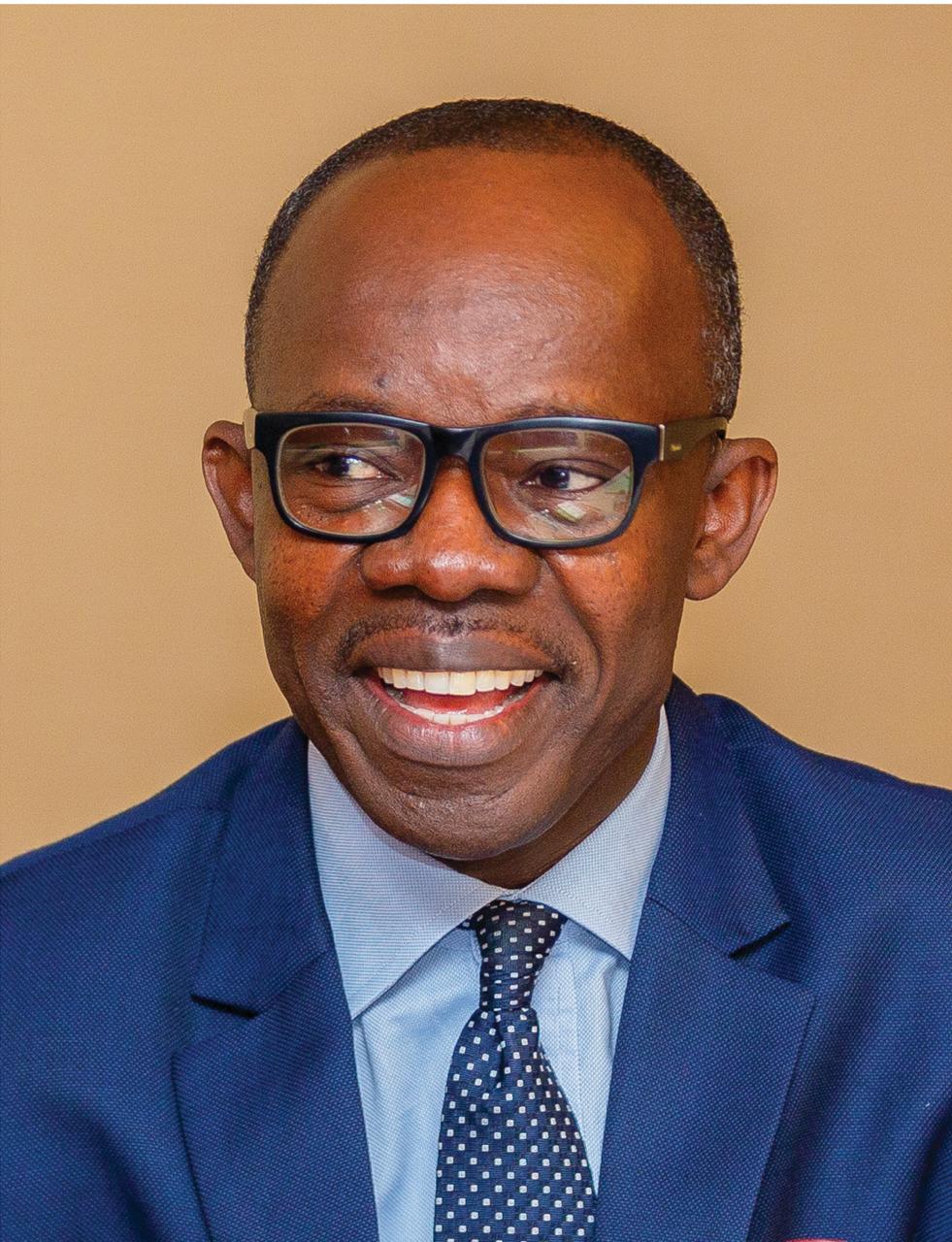Ghana has achieved a significant milestone in cybersecurity by being ranked as a Tier 1 country in the 2024 Global Cybersecurity Index (GCI) by the International Telecommunication Union (ITU).
This ranking, the highest in the GCI’s new five-tier system, places Ghana as a global leader in cybersecurity practices.
With an impressive score of 99.27%, Ghana is now the second highest-scoring country in Africa, after Mauritius.
It is one of only five African countries to achieve the Tier 1 status and among 46 countries worldwide in this category.
The GCI evaluates countries across five strategic pillars: Legal Measures, Technical Measures, Organisational Measures, Capacity Building, and Cooperation. Ghana’s score reflects improvements in these areas since the 2020 rankings, where it was rated at 86.69 percent.

Ghana’s role model status in the GCI is attributed to key initiatives like the Cybersecurity Act of 2020, the protection of critical information infrastructures, effective public-private coordination through the Joint Cybersecurity Committee, and international cooperation.
The country has also been recognized for promoting child online protection and developing a robust cybercrime reporting mechanism.
This accomplishment underscores Ghana’s commitment to building a secure digital ecosystem, highlighting the collaborative efforts of the Ministry of Communications and Digitalisation, the Joint Cybersecurity Committee, and various stakeholders in enhancing the nation’s cybersecurity framework.
Read the full statement below:
FOR IMMEDIATE RELEASE
To all media houses
GHANA RANKED TIER 1, A ROLE-MODELLING COUNTRY GLOBALLY FOR CYBERSECURITY DEVELOPMENT IN THE LATEST ITU GLOBAL CYBERSECURITY INDEX
Accra, September 13, 2024 – In a significant achievement, Ghana has been ranked with a Tier 1 status in the 2024 Global Cybersecurity Index (GCI) released by the International Telecommunication Union (ITU). The five tier system of the GCI are; Tier 5 – Building, Tier 5 – Evolving, Tier 3 – Establishing, Tier 2 – Advancing and Tier 1 – Role Modelling with Tier 1 being the highest ranked Tier of the Index.
This new 5-tiered ranking system categorises countries into different tiers based on their cybersecurity measures. Ghana’s placement in the Role Modelling category signifies that it is a leader in cybersecurity practices, serving as a benchmark for other nations. This status is crucial as it highlights Ghana’s advanced cybersecurity framework and its ability to set a high standard for others to follow, setting the basis for sustained cybersecurity activities to protect and secured Ghana’s developing digital ecosystem.
The remarkable score of 99.27 percent, makes Ghana the second highest scoring country on the African continent, after Mauritius. Ghana is also one (1) of five (5) African countries to achieve the Tier 1; Role modelling status and among 46 countries worldwide that fall in this category.
The GCI evaluates countries across five strategic pillars: Legal Measures, Technical Measures, Organisational Measures, Capacity Building, and Cooperation. The score of 99.27 percent indicates that Ghana improved upon its ratings under the different pillars compared to the 2020 GCI rankings in which Ghana was rated at 86.69%, placing it third in Africa after Mauritius and Tanzania.
Significant Contributions to Ghana’s score
Ghana’s role model status in the GCI is a testament to its leadership in several key areas. Other countries are learning from Ghana’s:
- Cybersecurity Act, 2020 (Act 1038): Ghana’s cybersecurity law remains the benchmarking legislation for the global south. Implementation of key provisions of the law, including licensing and accreditation of Cybersecurity Service Providers, Establishments, and Professionals; Ghana is the second country in the world to implement this industry protocol.
- Protection of Critical Information Infrastructures (CIIs): The CSA has been safeguarding Ghana’s critical systems essential to the digital economy with the responsibility including the developing and operationalising a risk management framework for CIIs and government digitalisation initiatives and coordinating crisis management.
- Institutional Arrangements: The Joint Cybersecurity Committee (JCC) and soon to be launched Industry Forum pursuant to section 81 of Act 1038 exemplifies effective coordination between public and private sectors in addressing cybersecurity challenges.
- Revision of the National Cybersecurity Policy and Strategy: This provides a clear direction and implementation plan for Ghana’s cybersecurity development.
- Institutionalisation of the Annual National Cyber Security Awareness Month (NCSAM): This initiative, along with other capacity-building efforts for law enforcement, public and private sector institutions, and academia, reflects Ghana’s commitment to enhancing cybersecurity awareness and skills.
- Development of the Computer Emergency Response Team (CERT) Ecosystem: Promoting incident response and coordination is critical to national cybersecurity.
- Cybercrime Reporting Mechanisms: Deployment of Cybercrime/Cybersecurity Incident Reporting Points of Contacts (PoCs) and issuance of monthly public alerts to guide the public.
- International Cooperation: Ghana has been recognised as a hub for training and capacity building for the sub-region by entities such as the European Union, Council of Europe (COE), the World Bank, and ECOWAS. Ghana has hosted numerous international capacity-building programs and contributed to global cooperation efforts by sharing knowledge and experience on platforms like the World Bank, the World Economic Forum, and Global Cybersecurity Forum. Ghana has ratified the Second Additional Protocol to the Budapest Convention and other international cooperation engagements and significantly contributed to the adoption of the recent UN Convention on Cybercrimes.
- Child Online Protection: The review of the Child Online Protection framework and the establishment of the National Cybersecurity Challenge exemplify Ghana’s dedication to protecting children online.
Ghana’s Commitment to Cybersecurity
This achievement reflects Ghana’s unwavering commitment to securing its cyberspace and ensuring a resilient digital infrastructure. The collective efforts of the Government of Ghana through the Ministry of Communications and Digitalisation, the Joint Cybersecurity Committee (JCC), and other public and private sector stakeholders have been crucial in reaching this milestone. Ghana’s Tier 1 status signifies that it is a role model in global cybersecurity practices, showcasing proactive measures and leadership in the cybersecurity domain.
Major sub-Saharan countries like Nigeria and Cameroon are currently in Tier 3, indicating they are still establishing key cybersecurity initiatives. Ghana’s leading position underscores the need for continued attention to areas such as capacity development, which remains crucial for sustaining the progress made. Despite scoring highly in four out of five areas, Ghana’s score in Capacity Development reflects a need for increased funding and support in both public and private sectors to enhance overall cybersecurity capacity development.
About the Global Cybersecurity Index (GCI)
The GCI is a critical benchmark used globally to evaluate countries’ commitment to cybersecurity. It provides a comprehensive, evidence-based assessment of cybersecurity measures, policies, and practices, offering a valuable tool for countries to assess their progress and identify areas for improvement.
Source: Adomonline
READ ALSO:

